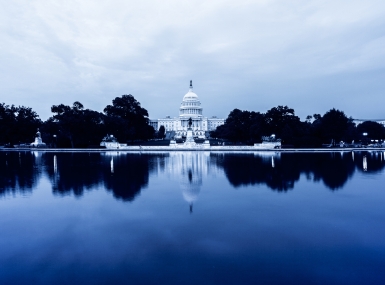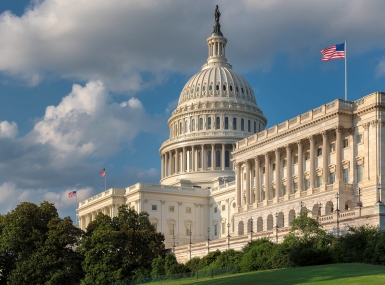County voting officials denounce claims of possible election-rigging
Upcoming Events
Related News
Counties defend integrity of elections after charges of "rigging"
“Loose talk” of possibly rigged elections has voting officials across the country “saddened,” “frustrated” and “annoyed,” county election administrators say.
“It’s turned our world upside down,” said Katrina Swanson, who has run elections in Cowlitz County, Wash. for the past 25 years. “We’re getting several phone calls, not only questioning their voter registration, but the security aspects of our system.”

She added that a number of “negative” posts to her department’s Facebook page have led to taking a “better safe than sorry” approach, which includes additional security for poll watchers and ballot drop boxes. Washington is an all vote-by-mail state, but most voters drop off their ballots rather than mail them back.
“It’s impugning everyone’s reputation when it doesn’t need to be that way,” said Linn County, Iowa Auditor Joel Miller.
One campaign's claims of “rigging” come on the heels of concerns about cybersecurity and hacking voting systems.
Voting fraud does occur, according to Rick Hasen, an elections law expert at the University of California Irvine and author of The Voting Wars, but not on a large enough scale to affect a national election, he said in a recent nationally broadcast radio interview. Most cases of voter fraud happen in local elections, where hundreds of ballots could make a difference, he said. “Usually, it's absentee ballots that are bought or sold.”
Dana DeBeauvoir, Travis County, Texas elections director, said “loose talk” is undermining voters’ confidence in the electoral system. “It is undemocratic; it is also difficult to defend against,” she said. “Because the charge is not specific, it is difficult to refute.”
One problem elections officials see is that two possible kinds of “rigging” are being conflated into one. There is a perception among some of the public that the news media is rigging the election through biased coverage. And then, there’s the notion that voter fraud will somehow rig the election.
Iowa Gov. Terry Branstad recently implied that rigged elections and voter fraud are the same thing, Miller said. “I vehemently disagree with that,” and he has stated as much in news media interviews — calling such claims “bogus.” For that Miller has been castigated by a citizen who called his office demanding that he apologize.
“We’ll have 600 precinct election officials out there working 86 precincts; they’re all trying to do the right thing,” he said. “And that’s the only way we can have elections ... via community volunteers who step forward who agree to work a 12-, 14-, 16-hour day for very little pay because they believe it’s their civic duty to administer elections.”
One of the presidential campaigns has also encouraged its supporters to “get everybody to go out and watch” polling places for signs of voter fraud. On Oct. 20, GOP leaders in Pennsylvania filed a lawsuit against the state’s secretary of state to allow poll watchers to monitor elections outside their home counties. They argue that because Philadelphia is an overwhelmingly Democrat-leaning city and county, it’s not possible to find enough Republicans who live within about 1,700 precincts to serve as poll monitors.
States have specific guidelines for official, credentialed poll watchers, Miller said, who are approved by local Republican and Democratic party chairs.
“If you show up and you’re not credentialed,” he added, “then you’d better be there to vote or you’re going to be asked to leave. We don’t just allow anybody to just show up and stand around and loiter.”
DeBeauvoir said there are laws in most states that “protect the safe haven of the polling place for voters.”
In the 2014 General Election, counties oversaw
- 104,000 polling places
- 648,000 poll workers
- 83,262,122 votes were cast
“Also it would take a great deal of grass roots organizing to have an effect on a lot of polling places. We are not seeing evidence of actual organizing, just loose talk,” she said. “The one aggregation point of Election Day is a vulnerability we need to plan for and protect our voters against possible schemes of interference.”
Alysoun McLaughlin, deputy election director for Montgomery County, Md., believes elections officials have an “obligation” to use concerns about the voting process as “teaching moment.”
“Few voters have much of an idea how the process works behind the scenes,” she said. “When the national media are asking questions, it gives us a good opportunity to educate voters on how we secure ballots and make sure that every vote is counted accurately and the transparency that is built into the process.”
Miller is doing just that. He plans to offer public tours of the county’s elections process. “If people will come in and see how we do it, then maybe they will restore some confidence in the system for those people who are the biggest doubters.”
One of McLaughlin’s concerns is that suggestions of fraud, rigging and hacking “puts ideas in the head of someone who thinks it would be a good ‘prank’ to try and mess with election equipment.”
“I’m confident in our systems for detecting it and making sure that ballots are cast and counted accurately,” she said, adding that attempts to disrupt or influence the election would be prosecuted. Still, she worries that someone who wanted to “make a spectacle of themselves could temporarily disrupt a polling place.”
Cowlitz County’s Swanson calls election administrators “democracy’s first responders.”
“In all my 25 years of elections administration, I’ve never experienced a time of such fragility of the voters’ faith in the elections process,” she said. “The voter’s confidence matters. Trust in the voting process matters.”
Attachments
Related News

MEGA Act moves in House; NACo raises county concerns
On Feb. 10, the U.S. House Committee on Administration held a hearing to consider the Make Elections Great Again (MEGA) Act (H.R. 7300), which was introduced by Committee Chairman Rep. Bryan Steil (R-Wis).

Rising costs, federal cuts challenge some counties
Some counties across the country are reducing staff to alleviate budget deficits, as a result of rising operational costs and cuts to funding and jobs at the federal level.

House passes SAVE Act; Major impacts on county election administration
Next week, the U.S. House of Representatives is slated to vote on the Safeguarding American Voter Eligibility (SAVE) Act (H.R. 22), making it the chamber’s second vote on a version of the legislation in less than a year.